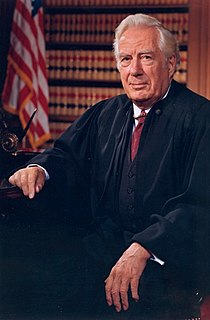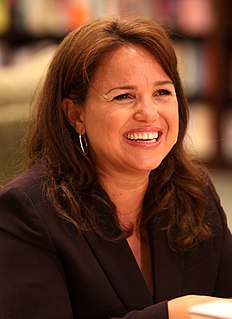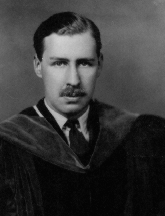A Quote by Warren E. Burger
The Constitution does not require complete separation of church and state; it affirmatively mandates accommodation, not merely tolerance, of all religions, and forbids hostility toward any.
Related Quotes
The First Amendment...does not say that in every respect there shall be a separation of Church and State....Otherwise the state and religion would be aliens to each other - hostile, suspicious, and even unfriendly....The state may not establish a 'religion of secularism' in the sense of affirmatively opposing or showing hostility to religion, thus preferring those who believe in no religion over those who do believe.
Ultimately, the court is heading to a doctrine of 'separation of campaign and state.' This doctrine, like separation of church and state or separation of military and civilian authority, is not explicit in the Constitution but flows naturally from its structure and commitment to freedom and democracy.
I believe that prayer in public schools should be voluntary. It is difficult for me to see how religious exercises can be a requirement in public schools, given our Constitutional requirement of separation of church and state. I feel that the highly desirable goal of religious education must be principally the responsibility of church and home. I do not believe that public education should show any hostility toward religion, and neither should it inhibit voluntary participation, if it does not interfere with the educational process.
Tolerance obviously requires a non-contentious manner of relating toward one another’s differences. But tolerance does not require abandoning one’s standards or one’s opinions on political or public policy choices. Tolerance is a way of reacting to diversity, not a command to insulate it from examination.
As you know, the separation of church and state is not subject to discussion or alteration. Under our Constitution no church or religion can be supported by the U.S. Government. We maintain freedom of religion so that an American can either worship in the church of his choice or choose to go to no church at all.
The decision for complete religious freedom and for separation of church and state in the eyes of the rest of the world was perhaps the most important decision reached in the New World. Everywhere in the western world of the 18th century, church and state were one; and everywhere the state maintained an established church and tried to force conformity to its dogma.


































